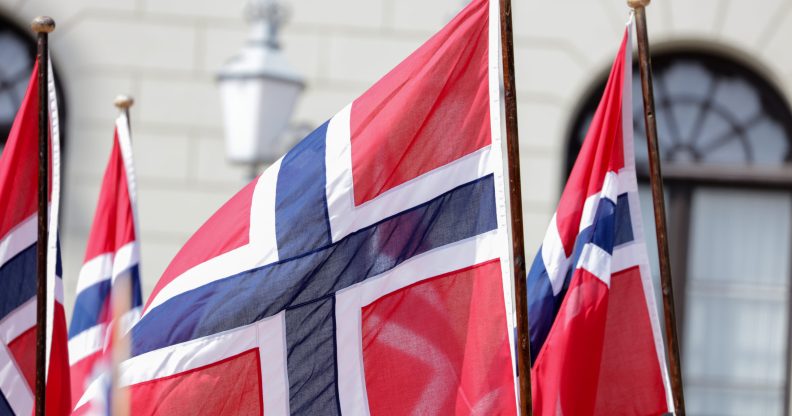Norway bans hate speech against bisexual and transgender people

Norwegian flag (Gonzales Photo/Stian S. Moller/PYMCA/Avalon/Universal Images Group/Getty)
Norway has banned hate speech against bisexual and trans people in a landmark change to its penal code.
Gay men and lesbians have been protected from hate speech under Norway’s laws since 1981, with those found guilty facing up to one year in prison or a fine for private comments or up to three years in jail for public comments.
However, that was as far as the law went, with bisexual and trans people left out in the cold.
Now, the 1981 ban has been updated to prevent hate speech based on “sexual orientation”, which also protects bisexual and pansexual people, as well as those with other queer identities, the Thomas Reuters Foundation has reported.
Crucially, the updated legal provision also bans hate speech based on “gender, gender identity or expression”, which will protect trans people.
Under the terms of the law, a person who commits a violent crime can receive extra time in prison if a judge determines that victim was targeted because of their LGBT+ identity.
The updated law was passed by Norway’s parliament on Tuesday (10 November). The bill was passed on its second reading without a vote after representatives voted in its favour following its first reading.
Trans people are ‘exposed’ to discrimination, harassment and violence in Norway.
Monica Maeland, minister of justice and public security in Norway, told Reuters that trans people are “an exposed group when it comes to discrimination, harassment and violence”, and added: “It is imperative that the protection against discrimination offered by the criminal legislation is adapted to the practical situations that arise.”
Meanwhile, Birna Rorslett, vice president of the Association of Transgender People in Norway, said: “I’m very relieved actually, because (the lack of legal protection) has been an eyesore for trans people for many, many years.”
Norway prides itself on being one of the most LGBT-friendly countries in the world. It ranked as one of the best countries for the LGBT+ in ILGA-Europe’s 2020 ranking, coming in fifth place.
The new legal change comes just months after the country announced that it would be prioritising LGBT+ asylum seekers as part of a new refugee scheme.
The three-year scheme was introduced in coordination with the UN after the outbreak of coronavirus disrupted the international settlement of many refugees.

